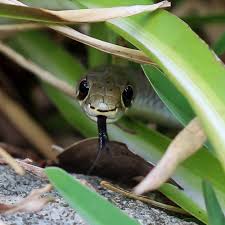Stamp: Aesculapian Snake (Elaphe longissima) (Bulgaria 1989)
Aesculapian Snake (Elaphe longissima) (Bulgaria 1989)
20 October (Bulgaria ) within release Snakes goes into circulation Stamp Aesculapian Snake (Elaphe longissima) face value 10 Bulgarian stotinka
| Stamp Aesculapian Snake (Elaphe longissima) in catalogues | |
|---|---|
| Michel: | Mi:BG 3785 |
| Stamp Number: | Sn:BG 3492 |
Stamp is square format.
Also in the issue Snakes:
- Mini Sheet - Mini Sheet with No. 3784-89 - Snakes face value 1.62;
- Stamp - Turkish Javelin Sandboa (Eryx jaculus turcicus) face value 5;
- Stamp - Aesculapian Snake (Elaphe longissima) face value 10;
- Stamp - European Ratsnake (Elaphe situla) face value 25;
- Stamp - Four-lined Snake (Elaphe quatuorlineata) face value 30;
- Stamp - European Cat Snake (Telescopus fallax) face value 42;
- Stamp - Collared Dwarf Racer (Coluber rubriceps) face value 60;
Stamp Aesculapian Snake (Elaphe longissima) it reflects the thematic directions:
Snakes are elongated, limbless reptiles of the suborder Serpentes Like all other squamates, snakes are ectothermic, amniote vertebrates covered in overlapping scales. Many species of snakes have skulls with several more joints than their lizard ancestors, enabling them to swallow prey much larger than their heads (cranial kinesis). To accommodate their narrow bodies, snakes' paired organs (such as kidneys) appear one in front of the other instead of side by side, and most have only one functional lung. Some species retain a pelvic girdle with a pair of vestigial claws on either side of the cloaca. Lizards have independently evolved elongate bodies without limbs or with greatly reduced limbs at least twenty-five times via convergent evolution, leading to many lineages of legless lizards. These resemble snakes, but several common groups of legless lizards have eyelids and external ears, which snakes lack, although this rule is not universal (see Amphisbaenia, Dibamidae, and Pygopodidae).

